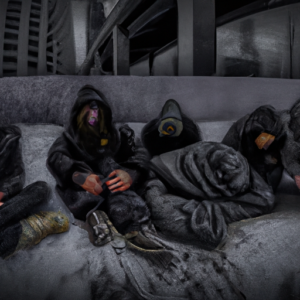Understanding the Imperative Need for Collective Action in The Canadian Opioid Crisis
Notwithstanding an array of prevention and intervention efforts, the scourge of opioids continues to afflict communities across Canada. To underscore this, recent reports from Montreal provide truly alarming accounts of skyrocketing overdose deaths, reflecting a grim facet of the Canadian opioid crisis. In analysing the impact of this crisis, it becomes very clear just how gravely the issue is affecting Canadian society, especially the disenfranchised and marginalized groups.source
Snapshot of The Situation
In brisk winter of February, Montreal was hit with an unusual spate of deadly overdoses, which put the city’s entire health system on high alert. Suspicion of a dangerous batch of drugs in circulation and fentanyl’s incessant grip exacerbated the concern regarding these incidents. As per the information reported, close to 12 people were victims of this hazardous upsurge.source
Key Points of The Crisis:
- The victims belonged to differing demographics, illustrating just how ubiquitous the issue is.
- At least eight of the victims were homeless individuals.
- Some involved illegal substances, possibly laced with synthetic opioids like fentanyl.
- The source of these substances remains unclear, sparking fears of a widely distributed deadly batch.
The Catalytic Role of the Pandemic
The opioid crisis was a challenge for Canada well before the emergence of the novel coronavirus. However, the pandemic has in many ways intensified the crisis by escalating levels of unemployment, homelessness, and mental health issues – all risk factors for substance abuse. As a consequence, overdoses and related fatalities have surged in an alarming trend that we cannot ignore.
Efforts to Mitigate The Crisis
Authorities, businesses, and the community at large, are stepping up efforts to tackle the opioid crisis. Naloxone kits are given out on a widespread basis. Naloxone is a life-saving drug that can quickly reverse an opioid overdose. It’s heartening to note that Montreal police officers managed to save two lives using this vital tool during the recent spate of overdoses.source
On the legal front, a Canadian opioid abatement class action has been launched alleging that certain pharmaceutical companies were negligent in their marketing of opioids, and that they placed profits before people’s health.
Philanthropic Efforts
The opioid crisis has elicited significant philanthropic responses, with donations being geared towards harm reduction services, treatment centers, and recovery services.
Closing Thoughts
Despite numerous efforts, the deep-seated problem of the opioid crisis persists unabated, unravelling in all its daunting complexity. The recent overdose deaths in Montreal underline the human cost of the opioid crisis, which continues to disproportionately affect the homeless and marginalized groups. To counteract this multidimensional issue, it will require an approach that isn’t merely confined to providing immediate treatments like naloxone, but also ensures long-term solutions like the creation of more socialised housing, employment opportunities, and mental health services. Together, we must labor towards a comprehensive solution that addresses the root causes of this epidemic, mitigating not only its symptoms but also its origins. The path is definitely challenging, but the welfare of Canadian society demands our steadfast determination and united action.
